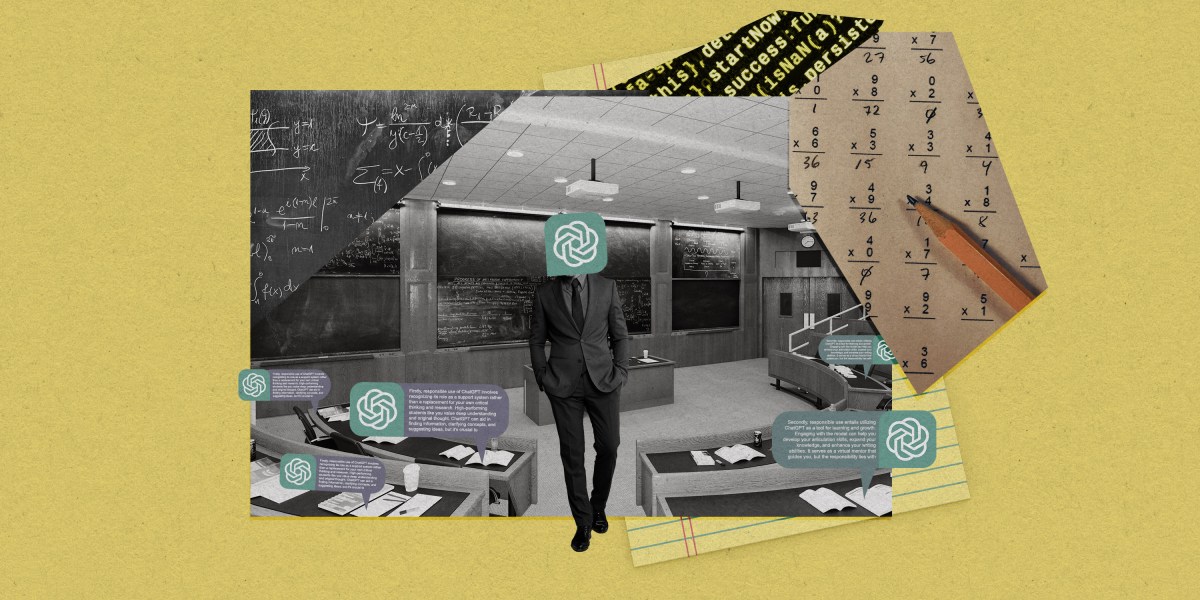How one elite university is approaching ChatGPT this school year

The big thing this year seems to be the same one that defined the end of last year: ChatGPT and other large language models. Last winter and spring brought so many headlines about AI in the classroom, with some panicked schools going as far as to ban ChatGPT altogether. My colleague Will Douglas Heaven wrote that it wasn’t time to panic: generative AI, he argued, is going to change education but not destroy it. Now, with the summer months having offered a bit of time for reflection, some schools seem to be reconsidering their approach.
For a perspective on how higher education institutions are now approaching the technology in the classroom, I spoke with Jenny Frederick. She is the associate provost at Yale University and the founding director of the Poorvu Center for Teaching and Learning, which provides resources for faculty and students. She has also helped lead Yale’s approach to ChatGPT.
In our chat, Frederick explained that Yale never considered banning ChatGPT and instead wants to work with it. I’m sharing here some of the key takeaways and most interesting parts from our conversation, which has been edited for brevity and clarity.
Generative AI is new, but asking students to learn what machines can do is not.
On the teaching side, it’s really important to revisit: What do I want my students to learn in this course?
If a robot could do it adequately, do I need to rethink what I’m asking my students to learn, or raise the bar on why it is important to know this? How are we talking to our students about what it means to structure a paragraph, for example, or do your own research? What do [students] gain from that labor? We all learn long division, even though calculators can do that. What’s the purpose of that?
I have a faculty advisory board for the Poorvu Center, and we have a calculus professor in the group, and he laughed and said, “Oh, it’s kind of amusing for me to watch you all grapple with this, because we mathematicians have had to deal with the fact that machines could do the work. That’s been possible for quite a while now—for decades.”
So we have to think about justifying the learning we’re asking students to do when, yes, a machine could do it.




